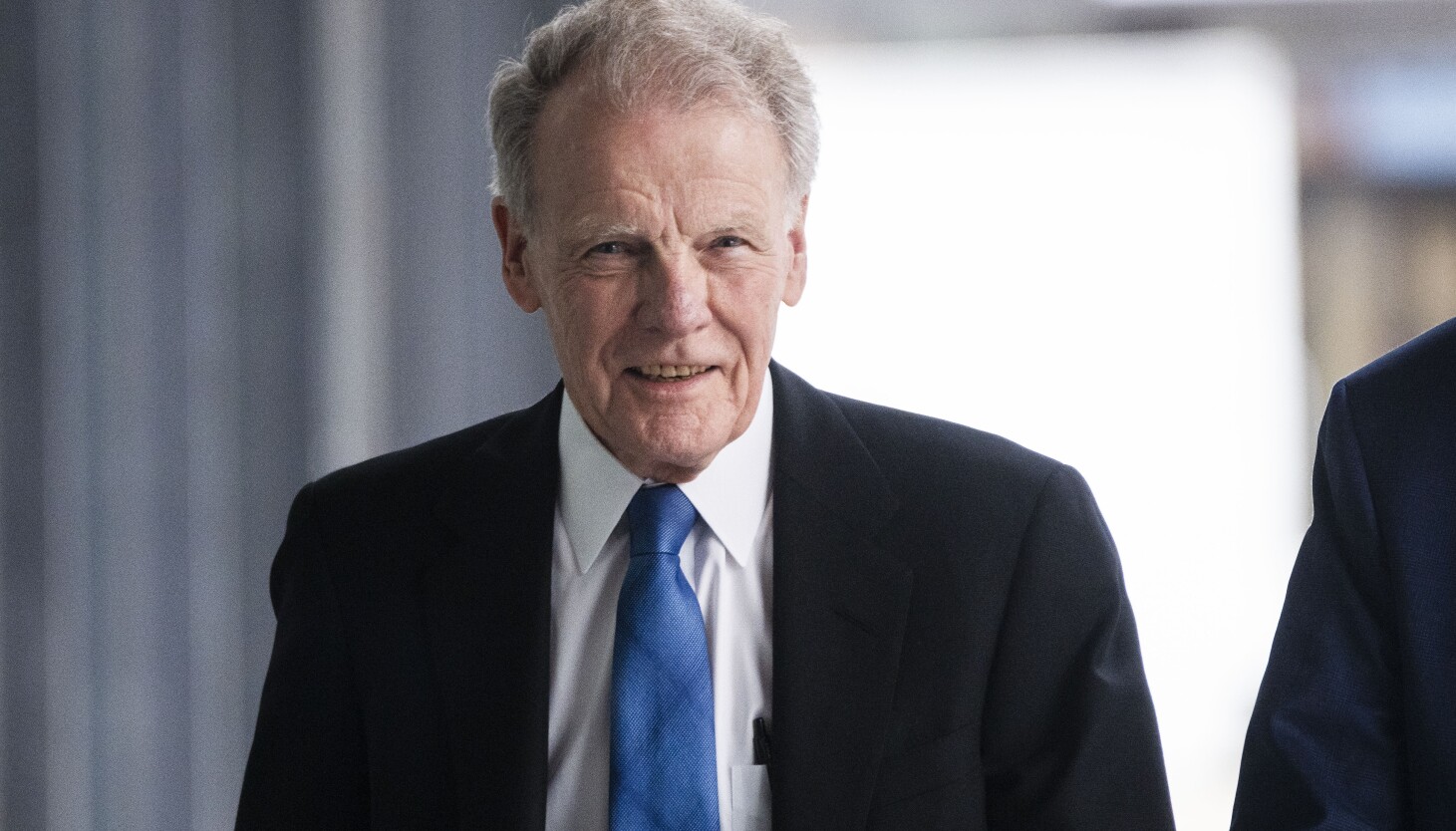Federal prosecutors last year secured bribery convictions for four political insiders with ties to Michael J. Madigan without the help of a prominent political science professor, despite references in secret recordings to Chicago’s “old-fashioned patronage system.”
Now, Madigan’s own trial is approaching in five weeks. This time, the feds hope they’ll be allowed to call that professor to the stand to explain the intricacies of local politics to jurors. But a defense attorney from last year’s case argued Thursday they were actually in the “unusual” position of knowing the professor’s testimony isn’t needed — all thanks to his client’s conviction.
“It was proven that this expert was unnecessary,” Patrick Cotter told U.S. District Judge John Blakey.
Testimony and arguments in Blakey’s 12th-floor courtroom — with former Illinois House Speaker Madigan sitting quietly in one corner — offered a taste Thursday of what’s to come as a series of public corruption trials resume this fall. The Southwest Side Democrat had been set to go to trial last spring, but a review of a key bribery law by the U.S. Supreme Court prompted a six-month delay.
The trial is now set for Oct. 8, and there’s much work to do.
Blakey must decide how the ruling by the high court will affect Madigan’s case. It found that the bribery law does not also criminalize after-the-fact rewards known as “gratuities.”
Set for trial alongside Madigan is his longtime confidant, Michael McClain. Represented by Cotter, McClain was convicted in May 2023 along with three other former ComEd executives and lobbyists for conspiring to bribe Madigan. Cotter recently argued Madigan and McClain should be tried separately. So Blakey must resolve that request, as well.
Attorneys for both men filed briefs this week objecting to evidence related to casino legislation, sexual harassment allegations in Springfield, and to the testimony of notorious government mole Danny Solis, who secretly recorded them for the FBI. Those briefs added to Blakey’s to-do list — and more objections to pretrial publicity are apparently forthcoming.
That’s to say nothing of the Sept. 10 trial of ex-AT&T Illinois President Paul La Schiazza on related charges. U.S. District Judge Robert Gettleman presides over that case.
And U.S. District Judge Manish Shah is separately considering whether the convictions of McClain and his three co-defendants in last year’s case should be tossed in light of the Supreme Court ruling.
The four argued Tuesday that the feds offered an incorrect theory of the law that “infected every aspect of the trial.” They were among nine people convicted last year in trials resulting from public corruption investigations in Chicago.
But Thursday’s arguments centered around the potential testimony of retired University of Illinois Chicago political science professor Dick Simpson. His testimony was barred from McClain’s 2023 trial. McClain and the others were found guilty anyway, as Cotter pointed out.
Cotter and Madigan attorney Daniel Collins argued that Simpson’s knowledge is out-of-date and anecdotal. Prosecutors say he would help jurors understand ward politics in Chicago and interpret comments like McClain’s reference on a recording to an “old-fashioned patronage system.”
Blakey did not rule Thursday on whether Simpson will be allowed to testify.
Madigan is accused of leading a “criminal enterprise” for nearly a decade designed to enhance his political power and generate income for his allies and associates.
The scene in the courtroom offered a glimpse of what the 10-week trial of Madigan and McClain could look like. Madigan attended the hearing but seemed to disappear behind the many defense attorneys. Blakely repeatedly warned Cotter against interruptions, and lawyers were reminded to speak into their microphones.
Simpson discussed his own background, the structure of Chicago government and the power of ward commiteemen. He acknowledged that he’s been an “opponent of the regular Democratic Party” in Chicago for a “significant part” of his career. But he denied that he’s been an opponent of Madigan, who led the Democratic Party of Illinois for decades.
Simpson said he represented the 44th Ward on the City Council for eight years in the 1970s, and he testified that it’s common for political volunteers to be rewarded with jobs.
He said his own volunteers were not “materially motivated” that way — but he said he also did not ask them if they were.
“You just testified a few moments ago that you knew that none of them was motivated by material interests, and yet you don’t know that,” Cotter pressed him. “You’re just guessing, isn’t that true, sir?”
Collins later told Blakey that the professor “doesn’t know anything” about the 13th Ward, which was Madigan’s power base.
“His only experience is, he was an alderman for eight years in the 1970s,” Collins said.
